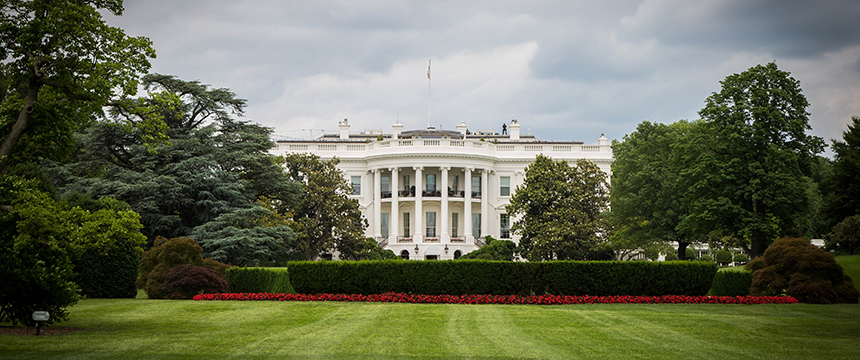Managing the Commercial Impact of the Coronavirus: President Trump’s National Emergency Declaration and Other Updates

“Caution is appropriate. Preparedness is appropriate. Panic is not.” (~ U.S. Surgeon General Dr. Jerome Adams, commenting on the coronavirus outbreak)
As the coronavirus outbreak continues to wreak havoc on markets and industries in the U.S. and around the world, businesses are now confronting significant and unique challenges. Successful navigation of these challenges will require thoughtful and comprehensive planning. Foley has created a multi-disciplinary and multi-jurisdictional team, which has prepared a wealth of topical client resources (see Foley’s Coronavirus Resource Center) and is prepared to help our clients meet the legal and business challenges that the coronavirus outbreak is creating for stakeholders across a range of industries, including manufacturing, technology, solar, hospitality and travel, healthcare, food, fashion and apparel, and sports & entertainment.
On Friday, March 13, President Trump issued a National Emergency Declaration under section 501(b) of the Stafford Disaster Relief and Emergency Assistance Act (the “Emergency Declaration”). The following lists some general facts about the Emergency Declaration and recent developments to guide companies in decision-making and risk mitigation.
- Federal-State Cost Share. The Emergency Declaration establishes the Department of Health and Human Services as the lead Federal agency for the Federal Government’s response to the coronavirus. The Emergency Declaration allows the Federal Government to access nearly $50 billion in funds. How governments will use that money is not yet clear; however, it will likely be used to establish temporary hospitals to ease the nation’s projected shortage of intensive care beds, or for other necessities, including food, water and medicine.
- Secretary of Health and Human Services Authority. The Emergency Declaration gives broad new authority to the Secretary of Health and Human Services (“HHS Secretary”). The HHS Secretary may waive provisions of applicable laws and regulations to give doctors and hospitals maximum flexibility to respond to the coronavirus and care for patients. This includes the power to waive certain federal licensure requirements that prevent doctors from practicing in other states, to waive requirements that critical-access hospitals limit the number of beds to 25 and the length of stay to 96 hours, the ability to waive the requirements of a three-day hospital stay prior to the admission to a nursing home, and the authority to waive rules that restrict where doctors can care for patients within a hospital. All of these measures are targeted to rapidly expand the nation’s healthcare capacity.
- Private Sector Partnership. Since the beginning of the coronavirus outbreak, more than 60 developers have sought FDA assistance with the development and validation of coronavirus tests. On March 13, Roche, one of the world’s largest biotech companies, announced that the FDA issued an Emergency Use Authorization for its coronavirus test. The test aims to provide results in three-and-a-half hours. Roche stated it “is committed to delivering as many tests as possible and is going to the limits of [its] production capacity.”1 The FDA also issued an Emergency Use Authorization for the widespread use of a coronavirus test developed by Thermo Fisher Scientific, a Massachusetts-based laboratory equipment firm.2 According to a spokesperson for Thermo Fisher, hospitals and labs can order the kits online immediately and should be able to start running the tests sometime this week. President Trump stated the recent FDA Emergency Use Authorizations should make 1.4 million tests available this week, and 5 million tests within a month.
- State Emergency Operation Centers. Nearly 40 states have declared states of emergency in response to the coronavirus outbreak. President Trump encouraged all state and local governments to activate their Emergency Operation Centers (“EOC”) and to review their emergency preparedness plans. The EOCs are the physical location where state, local and federal agencies will coordinate their response to the coronavirus. To date, many states have already activated their EOCs.
- Tax Relief. According to a letter issued by President Trump in connection with the Emergency Declaration (to view the letter, click here), Americans who have been adversely affected by the coronavirus will be relieved from tax deadlines.
- Student Loan Interest Freeze. To assist student and families, President Trump also stated interest accrual on certain federal student loans would be frozen until further notice. The student loan interest freeze only applies to student loans held by federal government agencies, such as the United States Department of Education and its contracted student loan servicers. The measure does not include any student loan payment relief whatsoever.
- New Travel Restriction for the United Kingdom and Ireland. On Saturday, March 14, President Trump issued a Presidential Proclamation (the “Proclamation”) that limited travel from the United Kingdom and Ireland to the United States. The ban goes into effect at 11:59 PM EST on Monday, March 16, 2020. The substance of the ban, and its exceptions, are identical to the March 11, 2020 Presidential Proclamation restricting travel from the Schengen Area (to view a summary of the March 11, 2020 Presidential Proclamation, click here).
For more information about this, please contact your Foley relationship partner. For additional web-based resources available to assist you in monitoring the spread of the coronavirus on a global basis, you may visit the CDC and the World Health Organization.
Click here for Foley’s Coronavirus Resource Center for insights and resources to support your business during this challenging time.
——————————————————————-
1 https://www.fiercebiotech.com/medtech/fda-grants-roche-coronavirus-test-emergency-green-light-within-24-hours
2 https://www.bostonglobe.com/2020/03/14/nation/waltham-s-thermo-fisher-provide-coronavirus-tests/
